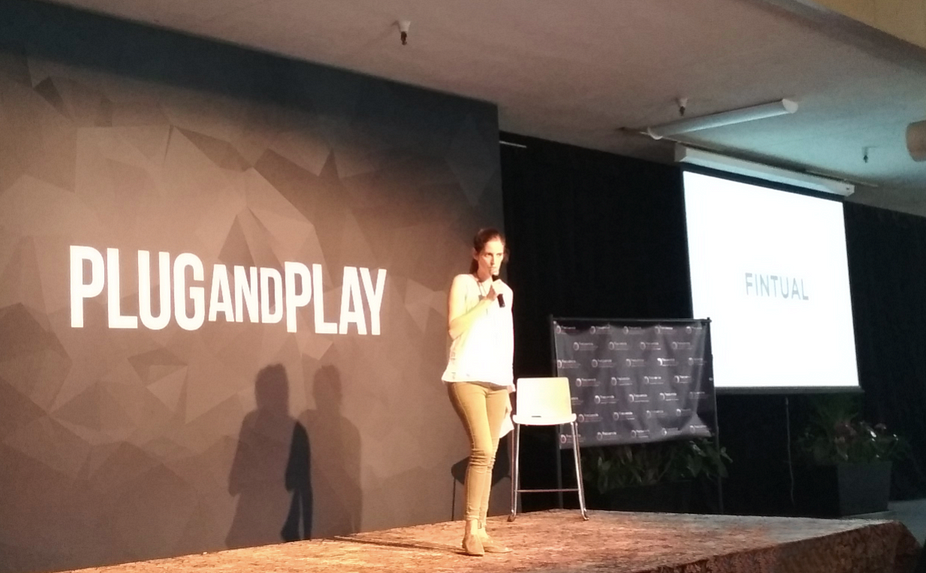Fintual is one of the Chilean startups that has been making the most noise in the past few months, particularly because they are the first Chilean startup to have been included in YCombinator. However, the achievement that they themselves highlight the most is having been the first fintech in Latin America to create their own mutual funds and now they have APV (voluntary pension savings), "especially because they told us many times that it was very difficult and that we shouldn't even try", says Pedro Pineda, founder, and CEO.
Fintual as a relatively young startup. They started developing the product in Santiago in 2016 and released their first product - mutual funds - in 2018. YCombinator's thrust keeps them with only one priority: to grow. Today, including interns and the office they are starting to open in Mexico, they currently employ 20 people.
Three of its founders: Pedro (CEO), Omar Larré (CIO), and Andres Marinkovic (CTO) talked to us.

Pedro: When we hire someone we like them to tell us what they have to do, and not us telling them. Nobody has time for micromanagement, so we rely a lot on the judgment of the people we hire. We look for three things that we copy from Bezos: One, that it's a person we admire or think we can admire. Two, that he raises the level of the entire team. Three, hopefully, someone who is superlative at something and, why not, a little weird or special.
Juan Fran, for example, programmed an automatic watering system for his plants, tired of them always dying. Boris hacked his dog and leaves him some audios on the Alexa so that he thinks there are people in the house and he doesn't bark in pain during the day. Francesca is a fan-fan of La Católica, she has a tattoo of the club's shield. Fantini, one of the last ones to join and who is in charge of Growth, is a mathematical engineer, astronomer, and physicist, he studied all three careers. And on Fridays, he brews beer at home and does not work at Fintual.
G: What is the day-to-day work at Fintual like?
Omar: We have sprint meetings on Thursdays and each area has its own meetings once a week, where the objectives and tasks for the week are stated and those of the previous week are reviewed. On a day-to-day basis, everyone arrives at the time they want and leaves when they want.
Andres: Anyone can work remotely if they want to. We have a remote developer who lives in Mendoza.
Pedro: Something I find good is that we all do customer service. Sebastian, our Compliance Officer - who makes sure we comply with all the regulations - from 9 to 10 AM has to answer questions from clients that have nothing to do with his work. Juan Fran, a developer who worked at Google for several years, is on from 4 to 5. It's not the most comfortable at first, but having us all responding helps us to stay connected with the client and the product we are offering.

G: What is your current Tech Stack like?
Andres: Currently Fintual is a Rails web application with associated workers. Everything communicates to a single database and is hosted on Heroku. Everything we do comes from web requests or jobs that run at a certain time. It's a pretty simple stack that allows us to make quick changes.
G: What makes Fintual's work environment different from others you've encountered?
Omar: The first big difference is the flexible schedule. We trust that we are all working on making this project work regardless of what time we decide to arrive or leave the office. Also the dress code: many in the traditional financial industry had to work with shirts, ties, shoes, and other codes that in Fintual are not really important.
Pedro: Another cool thing we do is to ask anyone who works at Fintual to present Fintual in some instance, contest or talk, regardless of the position.
For example, Fran presented at Plug and Play, in Silicon Valley. Fran is in charge of all the administrative issues in the office, and the day before she was a little anxious to present in English, but she did an excellent job.


Pedro: Here I think we are failing as a company. We are not developing career plans methodically. We are just starting out and the average age of the company is still under 30 (if we don't count Nibaldo, who is about 60). But, it's so much fun for the moment, and there are so few of us that I think we all feel that we are learning a lot and improving.
G: Why should a person choose Fintual as a place to work?
Pedro: When we started Fintual it was clear to me that I wanted to work in something I liked, with people I liked. And I try to make everyone feel that. In school when I played basketball, being the worst on the team made me raise my level a lot, and I felt something like that when we started with Omar, Andrés and Agustín. They are very, very, very cool guys that made me improve.
----
Would you like to work at Fintual? Follow them on Get on Board and find out about upcoming jobs.
Want to nominate a company to be featured on AwesomeCompanies? We welcome suggestions. Email us at team@getonbrd.com.